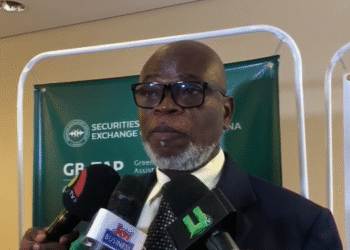The secondary market ended the week on a dull note, as the market participants remained on the sidelines awaiting for a clear direction on the interest rates as the government of Ghana misses its Treasury bills target.
The latest Treasury bills auction was heavily undersubscribed by GHS 553 million, indicating a fall in demand for government securities.
The auction saw T-bills worth GH¢2,310 million accepted across 91-Day bills, GH¢355 million across 182-Day bills, and GH¢115 million across 364-Day bills.
However, the accepted bids were slightly lower than the tendered bids by GH¢553 million, as the government was only able to secure GHS 2,780 million, compared to the targeted amount of GHS 3,333 million.
The yields for the 91-Day, 182-Day, and 364-Day bills were 20.4%, 22.9%, and 27.5%, respectively. Meanwhile, the high yields reflect the increased risk and uncertainty in the current market. The Ghanaian economy has been struggling due to the impact of the Covid-19 pandemic and other internal challenges, such as high debt levels, inflation, and a weakened currency.
Government Relying Heavily on Borrowing
The government has been relying heavily on borrowing to finance its budget deficit, which has widened significantly in recent years. The oversupply of government securities, coupled with weak demand, has resulted in a rise in yields on government bonds and Treasury bills, making it more expensive for the government to borrow.
Despite the high yields offered at the auction, investors remain cautious due to the uncertainty in the market, while others await a clear direction on the IMF front following the successful progression of the debt restructuring talks, as the secondary market displayed subtle activities.
The sluggish economic recovery had made investors wary, and they are increasingly seeking safer investment options. Additionally, the high yields reflect the increased risk and uncertainty in the market, making it less attractive to investors.
That notwithstanding, the government has set a target of GH¢ 2,732 million for the next auction scheduled for May 19, 2023. The auction will feature the 91-Day and 182-Day bills. The government will be hoping for improved market demand for its securities, but given the current market conditions, it remains to be seen whether the auction will be successful.
The current undersubscribed Treasury bills auction reflects the current challenges facing the Ghanaian economy.
According to experts, the government needs to implement measures to improve the economy’s performance and address the challenges it is currently facing. According to them, this would help to restore investor confidence, boost market demand, and reduce the government’s borrowing costs.
Meanwhile, some of the measures that could be implemented include reducing the budget deficit, improving revenue mobilization, reducing inflation, and stabilizing the currency.
Until then, investors are likely to remain cautious, and demand for government securities will remain subdued.
READ ALSO: World Bank Says The Greatest Option For African Oil And Gas Economies Is Asset Diversification























